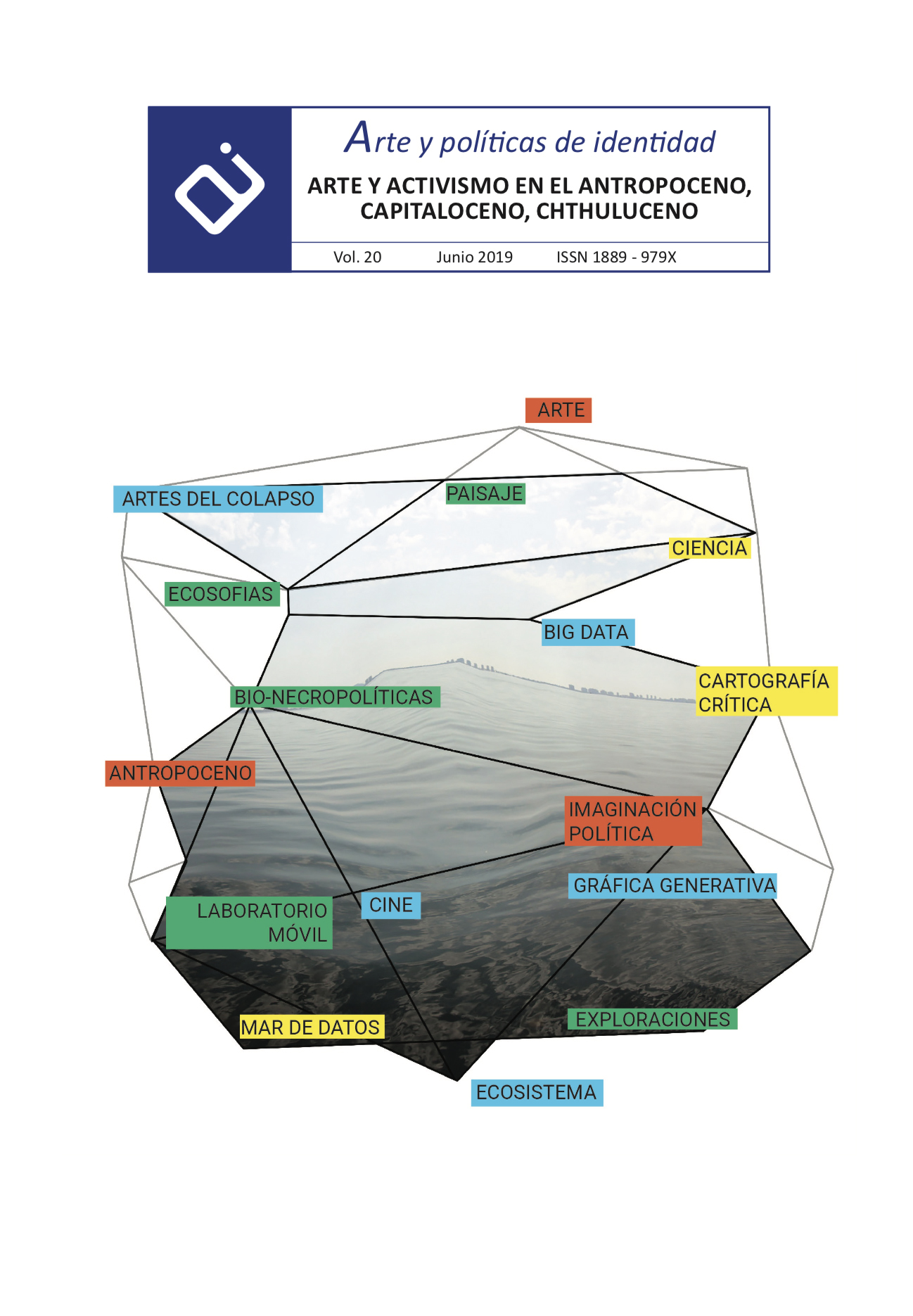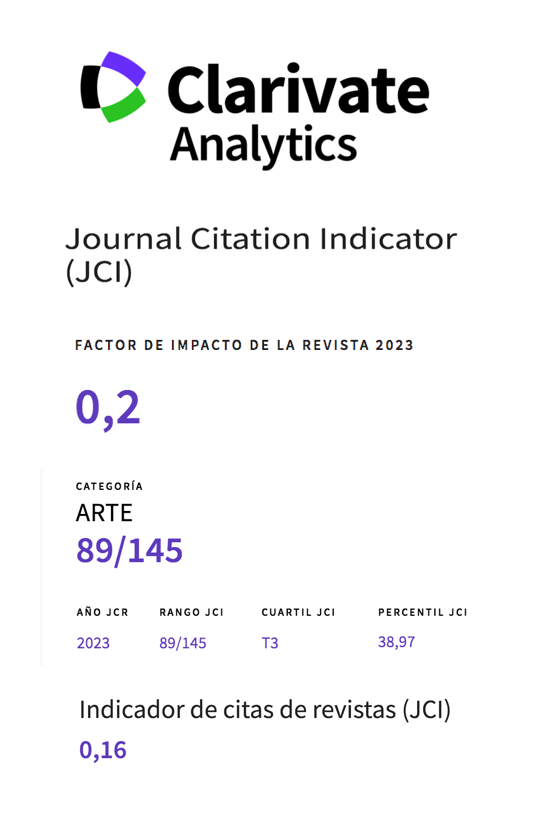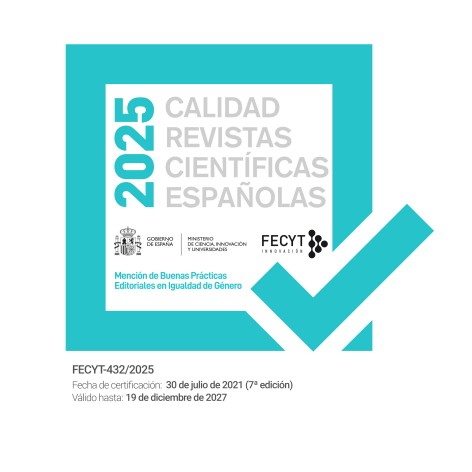Teotwawki y otros dioses neoliberales
Una reflexión sobre la política del fin del mundo
Resumen
¿Por qué resulta más fácil imaginar el Fin del Mundo que el Fin del Capitalismo? Para responder a esa pregunta, dentro del marco de la (aún) hipotética disciplina de la Apocaliptología, que se dedicaría a estudiar los múltiples vínculos entre Capitalismo y Fin del Mundo, este artículo desarrolla un análisis histórico-crítico de lo que los Sobrevivencialistas norteamericanos denominan Teotwawki, como forma de meta-relato que proporciona un marco semántico a una gama de discursos políticos que abarca desde el propio Sobrevivencialismo, hasta el anarquismo insurreccional del Comité Invisible, pasando por el anarco- primitivismo del movimiento de la Ecología Profunda o ciertas visiones del Antropoceno. Desde el final de la década de 1970, en un contexto donde el Realismo Capitalista vigila las fronteras de los imaginarios colectivos, impidiendo que florezca cualquier alternativa al orden neoliberal, las estructuras narrativas centradas en el Fin-del-Mundo han venido desplazando a las que giraban en torno al Fin-del-Capitalismo, desconectando el deseo de transformación social radical de la idea de revolución, y reconduciéndolo hacia la retórica de la catástrofe y el colapso civilizatorio.
Descargas
-
Resumen584
-
PDF489
Citas
Abercrombie, N., Hill, S., &. Turner, B. S. (1984). The Penguin Dictionary of Sociology. Harmondsworth: Penguin, 1994.
Adorno, T.W. (1942). ThesenüberBedürfnis, Eng. trans. by M. Shuster & I. Mcdonald, Theses on Need, in Adorno Studies, vol. I, 1, January 2017, pp. 100-104.
Adorno, T.W. (1951). Minima Moralia: Reflexionen aus dem beschädigten Leben, Eng. trans. by E.F.N. Jephcott. Minima Moralia Reflections on A Damaged Life. London: Verso, 2005.
Adorno, T.W. (1958). Der Essay als Form, in Noten Zur Literatur I, Frankfurt: Suhrkamp; Eng. trans. by S. Weber Nicholsen: The Essay as Form, in Notes to Literature, vol.1. (pp. 3-23) New York: Columbia University Press, 1991.
Adorno, T.W., (1966): Negative Dialektik, Frankfurt: Suhrkamp, 1992; Eng. trans. by E.B. Ashton (1973). Negative Dialectics. London: Routledge, 1990.
Benjamin, W. (1974). Gesammelte Schriften, vol I, 3. Frankfurt: Suhrkamp.
Berardi, F.B. (2011). After the Future. Edinburgh: AK Press.
Berlinski, C. (2008). There Is No Alternative: Why Margaret Thatcher Matters. New York: Basic Books.
Cohn, N. (1957).
The Pursuit of the Millennium: Revolutionary Millenarians and Mystical Anarchists of the Middle Ages. New York: Oxford University Press, 1990.
Danowski, D. & Viveiros de Castro, E., (2014) Há mundo por vir? Ensaio sobre os medos e os fins, Desterro, Florianopolis: Cultura e Barbárie-Instituto Socioambiental, Eng. trans by R. Nunes. The Ends of the World Cambridge, UK: Polity, 2017.
Davis, M. (2001). Late Victorian Holocausts: El Niño Famines and the Making of the Third World. London: Verso.
Davis, M. & Monk, D.B. (eds.) (2007). Evil Paradises: Dreamworlds of Neoliberalism. New York: New Press. Bibliografía.
DiPaolo, M. (ed.). (2018). Working-Class Comic Book Heroes: Class Conflict and Populist Politics in Comics. Jackson: University Press of Mississippi.
Ehrlich, P.R. (1968). The Population Bomb. San Francisco: Sierra Club.
Fazio, M. (2018). Memory and the Meaning of Work in The
Walking Dead, in DiPaolo, M., (ed.). Working-Class Comic Book Heroes: Class Conflict and Populist Politics in Comics. Jackson: University Press of Mississippi, pp. 49-80.
Federici, S. (2004), Caliban And The Witch: Women, the Body and Primitive Accumulation. New York: Autonomedia.
Flanders, L. (2013). At Thatcher’s Funeral, Bury TINA, Too. The Nation. Retrieved January 30th, 2019 from
https://www.thenation.com/article/thatchers-funeral-bury-tina-too/
Fisher, M. (2009) Capitalist Realism: Is There No Alternative?,Winchester: Zero Books.
Foucault, M. (1966). Les mots et les choses: une archéologie des sciences humaines. Paris: Gallimard.
Geiselberger, H. (ed.) (2017). The Great Regression. Cambridge: Polity.
Harvey, D. (2005). A Brief History of Neoliberalism. Oxford: Oxford University Press.
Hobsbawm, E. (1959). Primitive Rebels: Studies in Archaic Forms of Social Movement in the 19th and 20th Centuries. Manchester: Manchester University Press.
Invisible Committee, The (2007). L’insurrection qui vient.Paris: La Fabrique, Eng. trans. by R. Hurley, The Coming Insurrection, Los Angeles: Semiotext(e), 2009.
Invisible Committee, The (2014). A nos amis.Paris: La Fabrique, Eng. trans. by R. Hurley, To Our Friends, Los Angeles: Semiotext(e), 2015.
Jack, J.I.C. (2015). 105 Ways Your Life Will Change After TEOTWAWKI. Skilled Survival. Retrieved January 30th, 2019 from https://www.skilledsurvival.com/life-after-teotwawki-part-1/#comments.
Jameson, F. (2003). Future City, NLR, 21, May-June, pp. 65-79.
Jappe, A. (2011). Violence, What Use Is It? Libcom, Retrieved January 30th, 2019 from https://libcom.org/library/violence-what-use-it-anselm-jappe.
Jensen, D. (2006). Endgame Vol.1: The Problem of Civilization, New York: Seven Stories Press.
Johnson, D. & Meriams, V. (2017). What We Do Now: Satnding Up for Your Values in Trump’s America. London: Mellville.
Kaplan, J. (1997). Radical Religion in America: Millenarian Movements from the Far Right to the Children of Noah, Syracuse. New York Syracuse University Press.
Keith, J.(1994). Casebook on Alternative 3. Lilburn, Georgia: IllumiNet Press.
Klein, N.(2007). The Shock Doctrine: The Rise of Disaster Capitalism. New York: Metropolitan Books.
Latour, B. (May 2017) The New Climate, Harper’s Magazine. Retrieved January 30th, 2019 from https://harpers.org/archive/2017/05/the-new-climate.
Loewenstein, A.(2015). Disaster Capitalism: Making a Killing Out of Catastrophe, London: Verso.
Losurdo, D.(2006). Controstoria del Liberalismo, Bari: Laterza, Eng. trans. by G. Elliott, Liberalism: A Counter-History. London: Verso 2011.
Malm, A. (2016). Fossil Capital: The Roots of Steam Power and the Roots of Global Warming. London: Verso.
Marx, K. & Engels, F. (1848). Manifest der Kommunistischen Partei, Eng. trans. by S. Moore, The Communist Manifesto. London: Penguin, 1976.
Mbembe, A. (2003). Necropolitics. Public Culture, 15(1), 11–40.
McBrien, J. (2016). Accumulating Extinction: Planetary Catastrophism in the Necrocene, in Moore, J.W. (ed.). Anthropocene or Capitalocene?: Nature, History, and the Crisis of Capitalism(pp. 116-137). Oakland, CA.: PM Press.
Meadows, D., et al. (1972). The Limits to Growth: A Report for the Club of Rome’s Project on the Predicament of Mankind. New York: Universe Books.
Moore, J.W. (2016a). Name the System! Anthropocenes & the Capitalocene Alternative. Retrieved January 30th, 2019 from https://jasonwmoore.wordpress.com/2016/10/09/name-the-system-anthropocenes-the-capitalocene-alternative.
Moore, J.W. (ed.) (2016b). Anthropocene or Capitalocene?: Nature, History, and the Crisis of Capitalism. Oakland, CA.: PM Press.
Morris, J.C., Greentree, V.W., & Taylor, J.A. (2014). The Myth of the Rugged Individual: Implications for Public Administration, Civic Engagement, and Civil Society. Virginia Social Science Journal, 49, 30-54.
Panizza, F. (ed.) (2005). Populism and the Mirror of Democracy. London: Verso.
Peterson, T.C., Connolley, W.M., & Fleck, J. (2008). The Myth of the 1970s Global Cooling Scientific Consensus.
Bulletin of the American Meteorological Society, 89: pp. 1325–1337. Retrieved January 30th, 2019 from
http://journals.ametsoc.org/doi/pdf/10.1175/2008BAMS2370.1.
Ramonet, I. (1995). La pensée unique, Le Monde Diplomatique, Janvier, pp.1-2.
Robertson D. (2018). How an Obscure Conservative Theory Became the Trump Era’s Go-to Nerd Phrase,
Politico, Retrieved January 30th, 2019 from https://www.politico.com/magazine/story/2018/02/25/overton-window-explained-definition-meaning-217010.
Rushkoff, D. (2018). Survival of the Richest: The Wealthy are Plotting to Leave Us Behind. Medium. Retrieved January 30th, 2019 https://medium.com/s/futurehuman/survival-of-the-richest-9ef6cddd0cc1.
Sawyer, J.S. (1972). Man-made Carbon Dioxide and the “Greenhouse” Effect. Nature. 239, 23–26.
Schmidt, M., & Van der Walt, L. (2009). Black Flame: The Revolutionary Class Politics of Anarchism and Syndicalism. Oakland, CA: AK Press.
Schmitt, C. (1922). Politische Theologie. Vier Kapitel zur Lehre von der Souveränität, München: Duncker & Humblot; Eng. trans. by G. D. Schwab, Political Theology: Four Chapters on the Concept of Sovereignty. Cambridge, Mass.: MIT Press, 1985.
Slatta, R., W. (2001). Taking Our Myths Seriously. Journal of the West, 40(3), 3-5.
Smith, N. (1984). UnevenDevelopment: Nature, Capital and the Production of Space. London: Verso, 2010.
Stirner, M. (1846). Der Einzige und sein Eigentum, Eng.trans. by D. Leopold, The Ego and Its Own. Cambridge: Cambridge University Press, 1995.
Streeck, W. (2016). How will Capitalism End? Essays on a Failing System, London: Verso.
Truscello, M. (2010). It’s The End Of The World As They Know It, And They Feel Fine. Reviews in Cultural Theory
, 1(1), 35-39.
Turner, F.J. (1893). The Frontier in American History. New York: Henry Holt, 1920.
Wark, M. (2015), “No Futurism”. Public Seminar.Retrieved January 30th, 2019 from http://www.publicseminar.org/2015/06/no-futurism/
Vandermeer, J. (2014). Acceptance. London: Fourth Estate.
Weart, S. (2008). The Discovery of Global Warming. Cambridge, Mass.: Harvard University Press.
Williams, E.C. (2014). Glass Barricades, 1. The New Inquiry. Retrieved January 30th, 2019 from
https://thenewinquiry.com/blog/glass-barricades-1
Williams, E.C. (2011).Combined and Uneven Apocalypse. Winchester: Zero Books.
Wolfe, R. (2016). The Invisible Committee, To Our Friends. Mediations 29.2 (Spring), pp. 181-188. Retrieved January 30th, 2019 from www.mediationsjournal.org/articles/our-friends.
Zubel, M. (2013). The Utopian Catastrophism of Insurrectionary Politics, MediaCommons, Retrieved January 30th, 2019 from http://mediacommons.org/tne/pieces/utopian-catastrophism-insurrectionary-politics.
Works published in this journal are subject to the following terms:
- The Service of Publications from the University of Murcia (publishing house) keeps the published works’ copyrights, and favors and allows the reuse of these works under the license indicated in point 2.
- Works are published in the journal’s online edition under the license Creative Commons Reconocimiento-NoComercial-SinObraDerivada 3.0 España(texto legal). They can be copied, used, disseminated, transmitted and publicly exhibited, as long as: i) the author and original source of publication are cited (journal, publishing house and work’s URL); ii) they are not used for commercial purposes; iii) the existence and specifications of this license are mentioned.
3. Conditions for auto-file. It is allowed and encouraged that authors share electronically their pre-print version (the pre-reviewed version) and /or post-print version (the reviewed and accepted version) of their Works before the publication, since it promotes its circulation and dissemination. RoMEO color: green.










